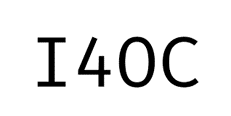Sociocritical paradigm in research
DOI:
https://doi.org/10.18050/psiquemag.v9i2.2656Keywords:
Paradigm, Sociocritical, Reflection, Social, Transformation, ResearchAbstract
This article aims to analyze the socio-critical paradigm in its relationship with scientific research, which is why the paradigm is previously defined as the representation of the commitment of the members of a scientific community with a way of exercising or guiding scientific practice. Likewise, it seeks to conceptualize the socio-critical paradigm, which is based on social criticism with a tendency to self-reflection, understanding that knowledge is built on the basis of concerns that arise from the needs of certain social groups (Maldonado, 2018), where Unlike the positivist paradigm, the researcher is no longer just an observer to become a generator of change that facilitates social transformations. On the other hand, the origins, position of authors, characteristics, principles and applications in different specialties are analyzed. Finally, the conclusions seek to reflect on the applicability of the socio-critical paradigm in our society.
References
Adorno, T., & Horkheimer, M. (1969). La Sociedad. Lecciones de Sociología. 208.
Alvarado, L., & García, M. (2008). Características más relevantes del paradigma socio-crítico: Su aplicación en investigaciones de educación ambiental y de enseñanza de las ciencias realizadas en el Doctorado de Educación del Instituto Pedagógico de Caracas. Sapiens. Revista Universitaria de Investigación, 9(2), 187-202.
Amador, S. (1994). Análisis comparativo de tres paradigmas de las ciencias sociales. Revista Estudios, 11, 59-67.
Badillo, L. C. C., & Romero, G. H. (2015). Una interpretación socio-critica del enfoque educativo basado en competencias. Perspectivas docentes, 57, 26-34.
Bisquerra, R. (1989). Métodos de investigación educativa | Silvana Villagran—Academia.edu. https://www.academia.edu/34814025/Bisquerra_M%C3%A9todos_de_investigaci%C3%B3n_educativa
Buck-Morss, S. (1981). Origen de la dialéctica negativa: Theodor W. Adorno, walter Benjamin y el Instituto de Frankfurt. Siglo Veintiuno.
Carr, W. & Kemmis, S. (1986). Teoría crítica de la enseñanza. https://www.academia.edu/7360913/Wilfred_Carr_Stephen_Kemmis_1986_Teor%C3%ADa_cr%C3%ADtica_de_la_ense%C3%B1anza
Catalán, M., & Jarrillo, E. (2010). Paradigmas de investigación aplicados al estudio de la percepción pública de la contaminación del aire. 14.
Ceolin, S., Piriz, M. A., Mendieta, M. da C., González, J. S., & Heck, R. M. (2017). Elementos del paradigma sociocrítico en las prácticas del cuidado de enfermería: Revisión integrativa. Revista da Escola de Enfermagem da USP, 51. https://doi.org/10.1590/s1980-220x2016037003267
Corona Lisboa, J. (2016). Apuntes sobre métodos de investigación. MediSur, 14(1), 81-83.
Creswell, J. (2013). Qualitative, Quantitative, and Mixed Methods Approaches. SAGE Publications Inc. https://us.sagepub.com/en-us/nam/research-design/book237357
Frankenberg, G. (2011). Teoría crítica. Educación y Educadores, 19(1), 67-88. https://doi.org/10.5294/edu.2016.19.1.4
Galvez, E., & López, E. (2016). Condicionantes de la conexión entre la teoría y la práctica en el Prácticum de Magisterio: Algunas evidencias a partir de TEDS-M | Estudios sobre Educación. https://revistas.unav.edu/index.php/estudios-sobre-educacion/article/view/4809
Gonzales, A. G. (2003). Los paradigmas de investigación en las ciencias sociales. Islas, 0(138), 125-135.
González, F. (2005). ¿Qué Es Un Paradigma? Análisis Teórico, Conceptual Y Psicolingüístico Del Término. Investigación y Postgrado, 20(1), 13-54.
Grijalba Bolaños, J., Mendoza Otero, J. N., Beltrán Alonso, H., Grijalba Bolaños, J., Mendoza Otero, J. N., & Beltrán Alonso, H. (2020). La formación del pensamiento sociocrítico y sus características: Necesidad educativa en Colombia. Revista Universidad y Sociedad, 12(1), 64-72.
Herran, A., Hashimoto, E., & Machado, E. (2005). Investigar en Educación: Fundamentos, aplicación y nuevas perspectivas. [Text]. https://www.madrimasd.org/cultura-cientifica/ciencia-cultura/ensayo/investigar-en-educacion-fundamentos-aplicacion-nuevas
Hurtado, M. A. (2017). Sociocrítica, decolonialismo e interculturalidad: el legado en Costa Rica. 29.
López, C. D., & Loria, M. de L. P. (2017). Vulnerabilidad educativa: Un estudio desde el paradigma socio crítico / Educational Vulnerability: A study from the socio-critical paradigm. Praxis Educativa, 21(1), 46-54. https://doi.org/10.19137/praxiseducativa-2017-210105
Maldonado, J. E. (2018). Metodología de la investigación social: Paradigmas: Cuantitativo, sociocrítico, cualitativo, complementario. https://elibro.net/es/ereader/bibliotecaupt/70335?bfpage=1&bfsearch=&bffolder=80567&prev=bf
Melero, N. (2017, octubre 30). El paradigma crítico y los aportes de la investigación acción participativa en la transformación de la realidad social: Un análisis desde las ciencias sociales. Compartir Palabra maestra. https://www.compartirpalabramaestra.org/actualidad/columnas/vulnerabilidad-educativa-un-estudio-desde-el-paradigma-socio-critico
Orozco, J. C. O. (2016). La Investigación Acción como herramienta para Formación Docente. Experiencia en la Carrera Ciencias Sociales de la Facultad de Ciencias de la Educación de la UNAN-Managua, Nicaragua. Revista Científica de FAREM-Estelí, 19, 5-17. https://doi.org/10.5377/farem.v0i19.2967
Pinilla-Rodríguez, D. E., Reinoso-Vásquez, H. R., Nacional de Chimborazo, Riobamba, Ecuador, López-Merino, M. E., & Nacional de Chimborazo, Riobamba, Ecuador. (2017). Complejidad, formación jurídica y transformación social. Algunas anotaciones. Jurídicas, 14(1), 87-101. https://doi.org/10.17151/jurid.2017.14.1.7
Ramos, C. (2015). Los paradigmas de la investigación científica. Avances en Psicología, 23(1), 9-17. https://doi.org/10.33539/avpsicol.2015.v23n1.167
Ricoy, C. (2006). Contribución sobre los paradigmas de investigación. 31(01), 13.
Rodriguez, A. (2019). Paradigma Sociocrítico en Investigación: Historia, Características—Lifeder. https://www.lifeder.com/paradigma-socio-critico/
Vera, A., & Jara, P. (2018). El Paradigma socio crítico y su contribución al Prácticum en la Formación Inicial Docente. 24.
Downloads
Published
How to Cite
Issue
Section
License
Copyright (c) 2020 PsiqueMag

This work is licensed under a Creative Commons Attribution-NonCommercial-NoDerivatives 4.0 International License.
You are free to:
- Share — copy and redistribute the material in any medium or format
- The licensor cannot revoke these freedoms as long as you follow the license terms.
Under the following terms:
-
Attribution — You must give appropriate credit, provide a link to the license, and indicate if changes were made. You may do so in any reasonable manner, but not in any way that suggests the licensor endorses you or your use.












